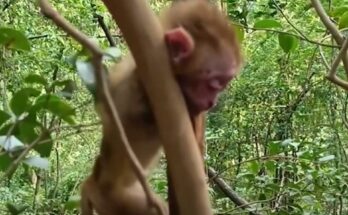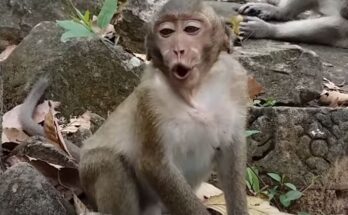It is a pity that the monkey has such a problem, as these intelligent and social creatures often face numerous challenges that threaten their well-being. One of the primary issues affecting monkeys is habitat destruction. As humans expand urban areas, clear forests, and exploit natural resources, monkeys lose their homes. This displacement forces them into close contact with humans, leading to conflicts and exposing them to dangers such as road accidents or attacks.
Another significant issue is the illegal wildlife trade. Many monkey species are captured and sold as exotic pets or used in entertainment industries. These activities are often cruel, stripping monkeys of their natural environment and subjecting them to stress, neglect, and poor living conditions. Additionally, monkeys are sometimes hunted for bushmeat or traditional medicine, further endangering already vulnerable populations.
In many regions, monkeys face health problems due to human interaction. Feeding wild monkeys, though well-intentioned, can lead to malnutrition, as their natural diets are replaced with unhealthy human foods. Moreover, close proximity to humans increases the risk of disease transmission, both to and from monkeys, exacerbating health issues.
Conservation efforts have made some progress, but much remains to be done to address these problems. Protecting and restoring natural habitats, enforcing stricter laws against illegal trade, and educating people about responsible interactions with wildlife are crucial steps. It is important to recognize the value of monkeys within their ecosystems and their right to live without human-induced harm.
Ultimately, the plight of the monkey highlights a broader issue of human impact on biodiversity. If we fail to act, we risk losing not only these fascinating creatures but also the delicate balance of ecosystems that depend on them. It is imperative that we take responsibility and strive for coexistence.
4o


